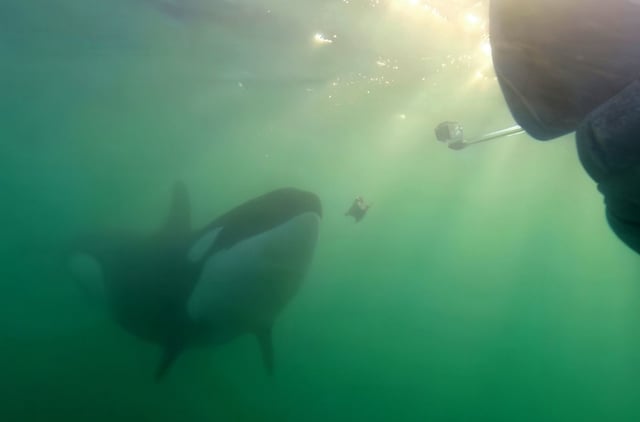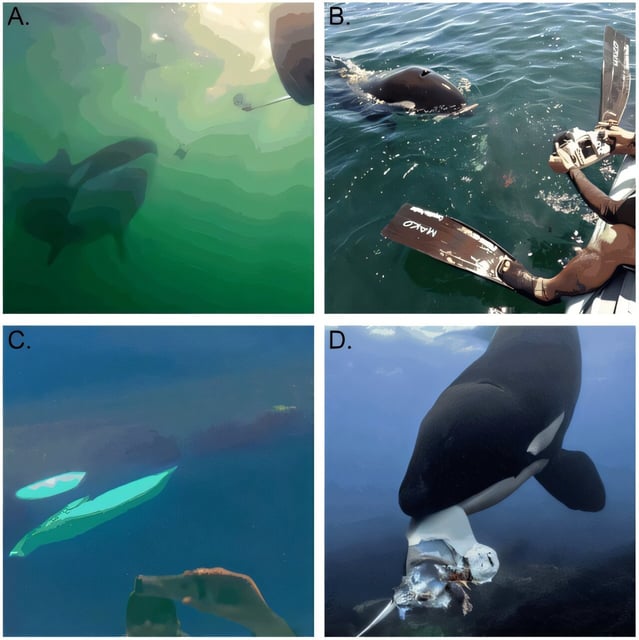Overview
- The Journal of Comparative Psychology published a review documenting 34 wild orca interactions from 2004 to 2024 in which whales deliberately dropped prey in front of humans.
- These offerings occurred off the coasts of British Columbia, Alaska, California, New Zealand, central Argentina and Norway, spanning six global regions.
- Researchers applied strict criteria, requiring orcas to approach unprompted with no human closer than 50 metres in the five minutes prior to each provisioning attempt.
- In all but one case, whales paused to gauge human reactions and in seven instances repeated the offering after people declined.
- Investigators interpret the gestures as extensions of orca prosocial and cultural food-sharing behaviour and strongly advise against accepting prey to avoid risks.

